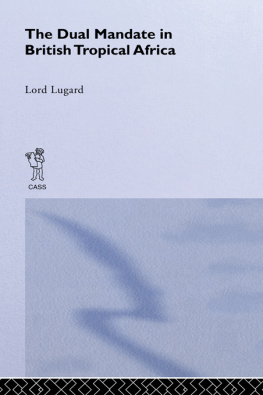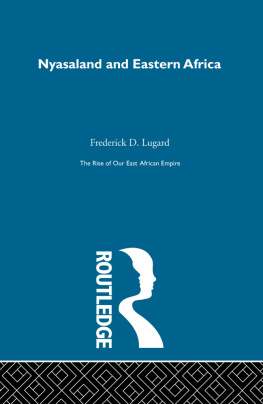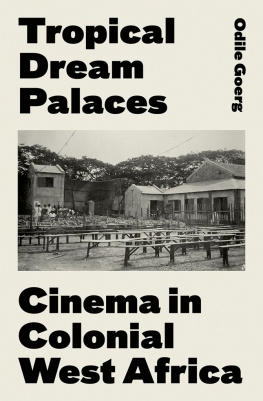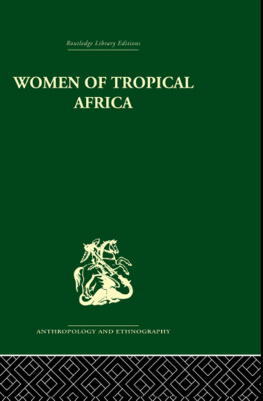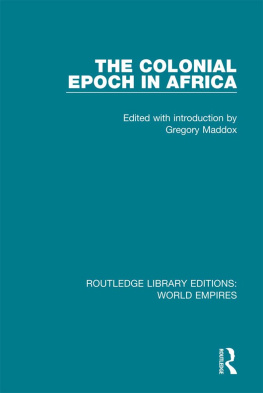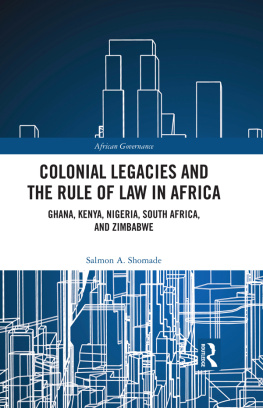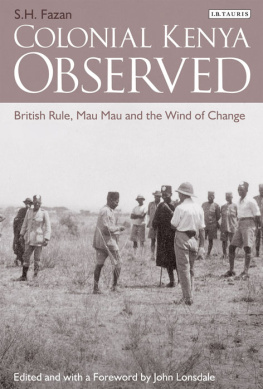THE DUAL MANDATE IN BRITISH TROPICAL AFRICA
THE DUAL MANDATE IN BRITISH TROPICAL AFRICA
LORD LUGARD
With a new introduction by
MARGERY PERHAM
C.B.E., D.Litt., F.B.A.
Published by Frank Cass & Co. Ltd.,
2 Park Square, Milton Park,
Abingdon, Oxon, OX14 4RN
by arrangement with
William Blackwood & Sons Ltd.
| First edition | 1922 |
| Second edition | 1923 |
| Third edition | 1926 |
| Fourth edition | 1929 |
| Fifth edition | 1965 |
Transferred to Digital Printing 2005
ISBN 0714616907
TO
MY WIFE
Whose unfailing sympathy and understanding have ever helped me in my work.
It will be the high task of all My Governments to superintend and assist the development of these countries for the benefit of the inhabitants and the general welfare of mankind.HIS MAJESTY THE KING.
The wellbeing and development of peoples not yet able to stand by themselves, form a sacred Trust of Civilisation.Covenant of League, Art. 22.
We develop new territory as Trustees for Civilisation, for the Commerce of the World.JOSEPH CHAMBERLAIN.
CONTENTS
_______
____________
PREFACE TO THE FIRST EDITION
_______
THE object which I have had in view in setting down these notes on administration in British tropical Africa is twofold. In the first place, I have hoped to put before those who are interested in the development of that part of the British Empire beyond the seas for which Great Britain is directly responsible, an outline of the system under which those responsibilities have originated and are being discharged, and some idea of the nature of the problems confronting the local administrator. In the second place, in discussing these problems I have ventured to make some few suggestions, as the result of experience, in the hope that they may be found worthy of consideration by the men on the spotin so far as the varying circumstances of our Crown colonies and protectorates may render them in any degree applicable.
To Sir E. Speed, late Chief Justice of Nigeria, I am indebted for having kindly overlooked the chapters on The Law and Courts of Justice, and those on the status of protectorates, &c. ; to Colonel Amery, M.P. (late Under-Secretary for the Colonies), who has read the chapters on Home Administration and . (Taxation) and to Sir John Eaglesome, who has read the chapter on Railways and Transport.
In the endeavour to present in a self-contained form each of the subjects with which the various chapters deal, it has been impossible to avoid frequent repetition, due to the different point of view presented, and for this I must ask my readers indulgence.
I have made a point of citing authorities freely in the footnotes, with the object of indicating where fuller information may be found, should the reader desire to explore the subject further.
F. D. L.
ABINGER COMMON, SURREY,
December 1921.
PREFACE TO THE SECOND EDITION
_______
THE exhaustion of the First Edition of this work has afforded me the opportunity to revise the pages referring to the Mandate System (pp. 50-58), and those referring to the Kenya Question (pp. 317-324) by the light of more recent events, and to make various other minor alterations and corrections in the first eighteen chapters (see Note re Abyssinian Slavery, p. 359, &c.).
F. D. L.
ABINGER COMMON,
15th July 1923.
INTRODUCTION TO THE FIFTH EDITION
BY
Margery Perham
INTRODUCTION TO THE FIFTH EDITION
_______
1. THE WRITING OF THE BOOK
SIR FREDERICK LUGARD, as he was then, retired from his last post under the Colonial Office, the Governor-Generalship of Nigeria, in 1919. In May of that year he wrote to the firm of Blackwoods, which in 1893 had published his earlier two-volume book, The Rise of our East African Empire, to offer a book of no great size on problems of African tropical Administration. He had written his first book in six months. His second took him two years. But now he was a great man, with all the time-consuming responsibilities of that status. During the period, moreover, he was still concerned with tasks rounding off his long work in Nigeria. Moreover, a thrifty country having provided him with barely enough to live upon, he joined a new venture, the Abyssinia Corporation, and went out to that country on its behalf. The resultant book, while it does not balance the scales with Lord Haileys weighty volumes on much the same subject, hardly fulfils Lugards modest intention as to size. In view of its close-woven texture, and its load of footnotes, its production in two years was a triumph of concentrated energy such as he brought to all his tasks.
In this work he had the encouragement of his wife. He had brought his inability to do things by halves, or even by three-quarters, into his marriage and he felt for his wife a love passing that of the generality of men. In her he possessed Flora Shaw, a female phenonmenon of her period, former colonial correspondent of The Times, traveller, authoress, a woman of beauty and birth, who moved of right in the political and fashionable circles of the time.
Lugards own book was widely and seriously reviewed, and was given the red ribbon of a classic. His name was now famous and the Nigeria where he had done his longest and most authoritative work, was, politically at least, Britains most important dependency in Africa. The world war was over now and Britain was able to take up again her task, interrupted by hostilities in Africa as well as in Europe, of colonial development and administration. The task was generally seen to have been only just begun and its future had then no visible terminal point. At such a time the considered views of Britains greatest colonial governor upon African administration naturally commanded great attention.
The book ran through four editions appearing in 1922, 1923, 1926 and 1929. The only important revision was in the 1929 edition in which the sections on the League of Nations Mandate system and the problems of East Africa were re-written. In spite of the acclaim Lugard was disappointed in the sales, which reached 2,242. He was not much interested in literary fame, still less in royalties, but he was greatly disappointed that the price of two guineas put it out of the reach of the members of the Colonial Service whose instruction had been his main purpose in writing. It was not enough for him that the book was to be found in every British African headquarters, central and provincial. In all his correspondence with Mr. Blackwoodconducted upon a scale and with a personal flavour that would arouse the envy of most contemporary authorsLugard continued to urge a price of ten shillings even if this required that he should sacrifice all royalties or even pay a subsidy.
The reviews, in their number, length and thoroughness, would also arouse nostalgia among modern authors. The cuttings fill a large volume. There are two points made in them which may be selected for discussion.
The first was the general recognition that the book was an authoritative justification of Britains annexation and government of tropical Africa. It was especially regarded as an answer to an early Labour pamphlet which had recently appeared at the price of twopence, apparently inspired by Mr. Leonard Woolf, whose own denunciatory book,


